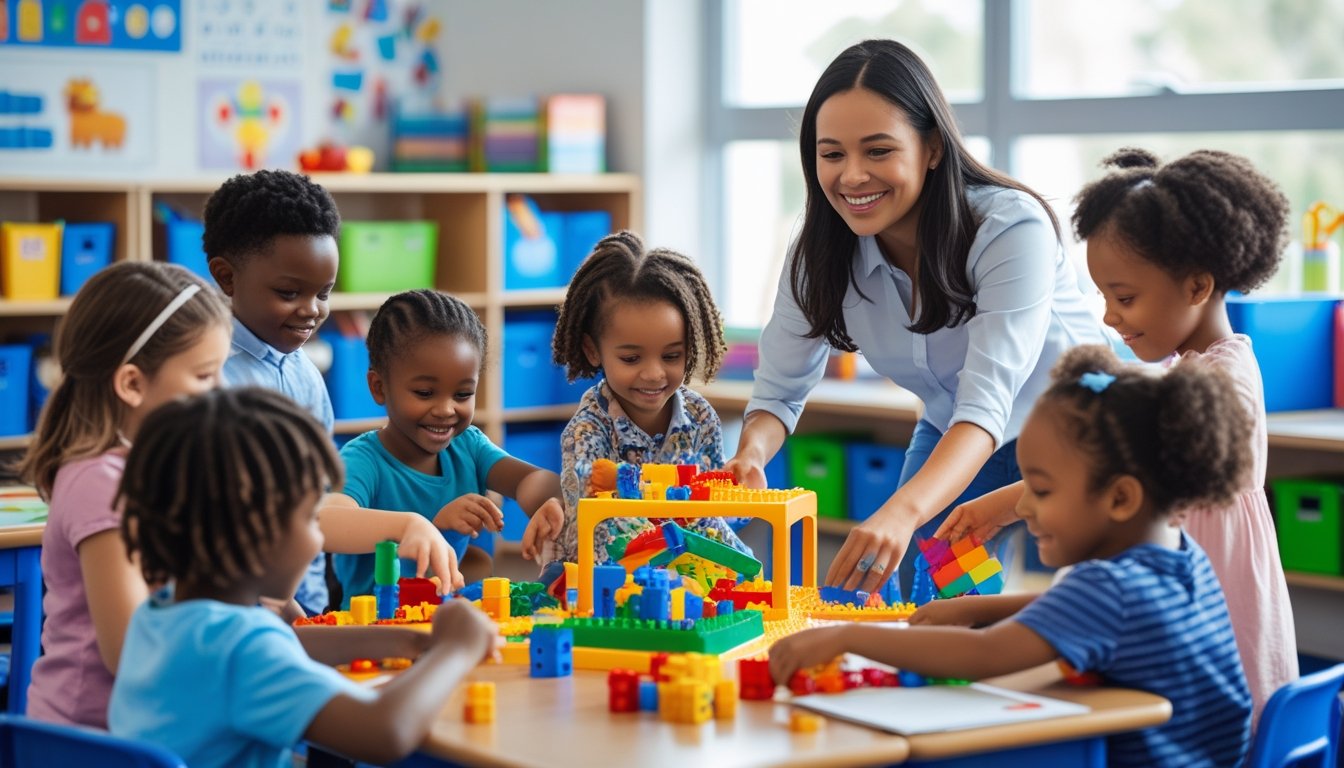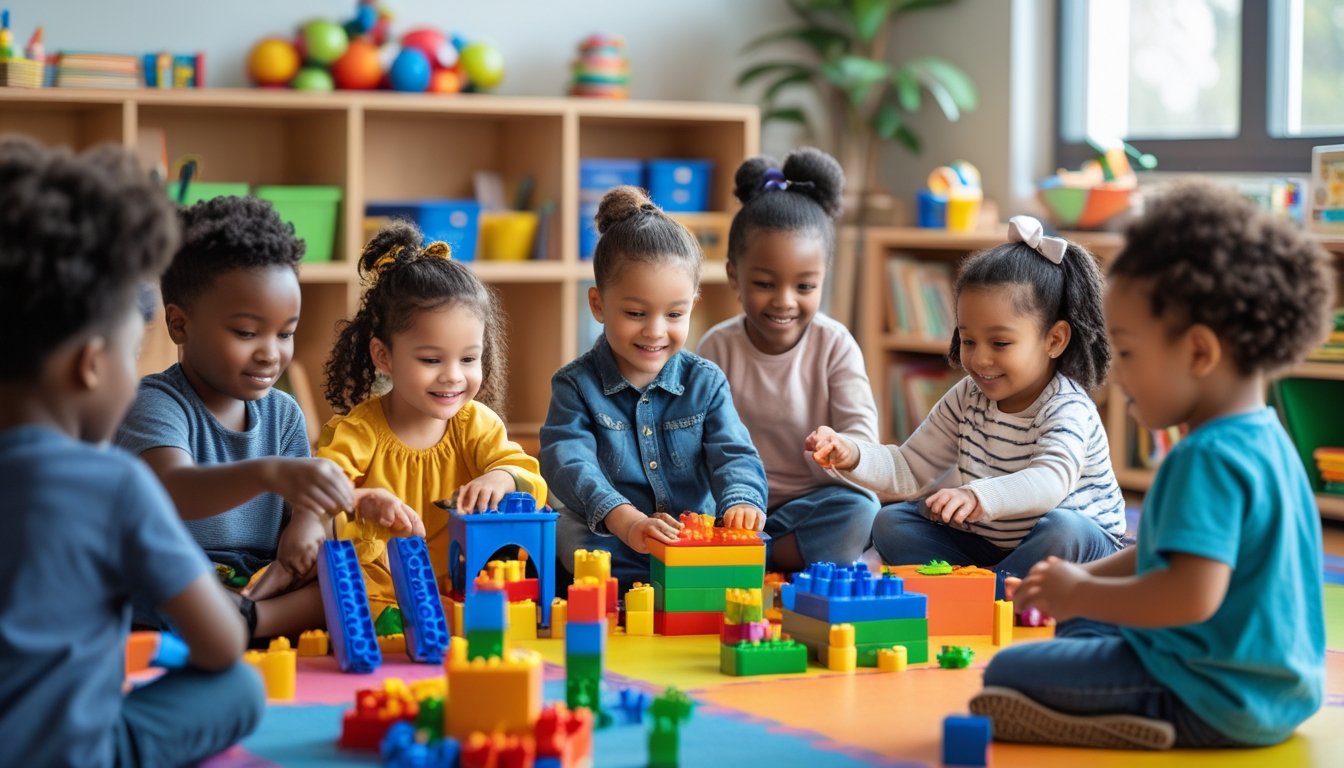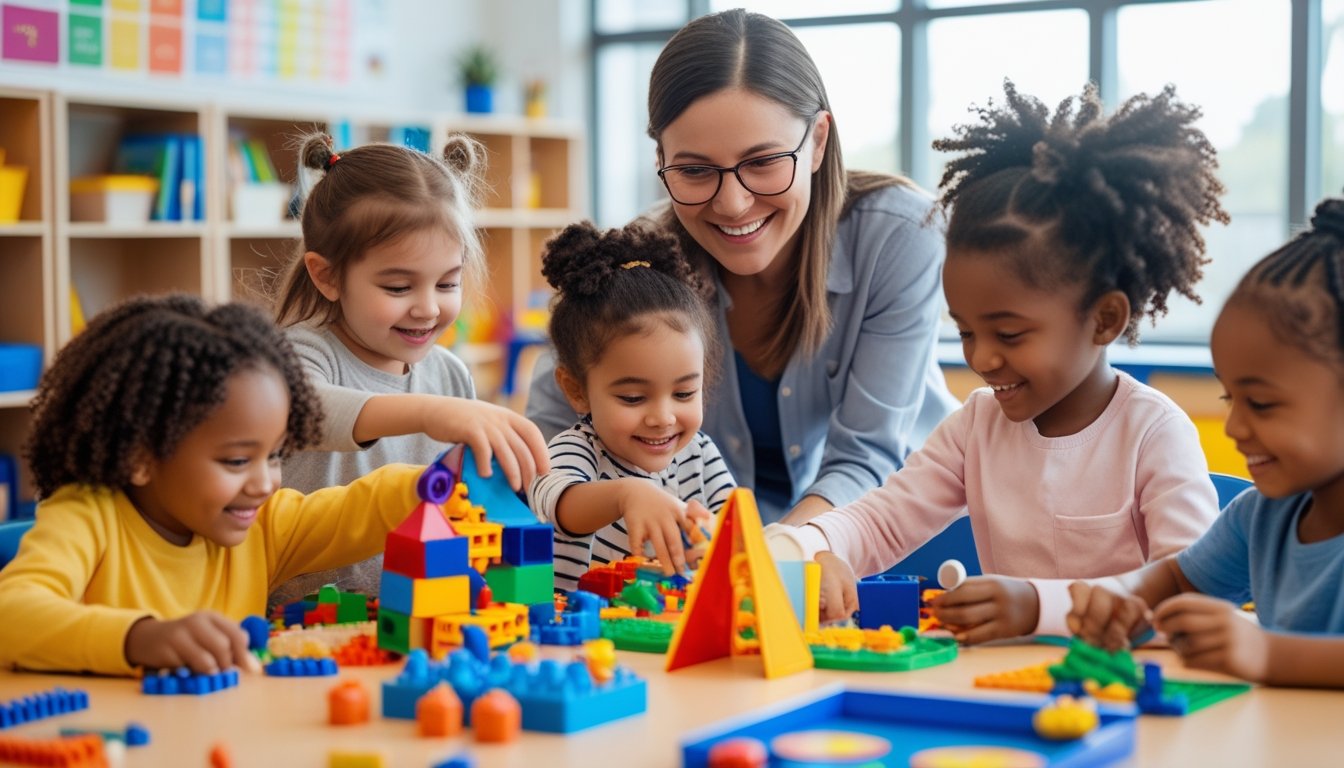Late updated: 12 May 2025 12:05
Written by:
The Role Of Play In Learning Development: Unlocking Educational Potential
In our modern world, where structured learning takes precedence, the profound role of play in learning and development often goes unnoticed. Play is a cornerstone of childhood development, unlocking creativity, bolstering problem-solving abilities, and nurturing social skills. From imaginative role-playing to engaging in structured games, each form of play contributes uniquely to a child's cognitive and emotional competencies.

Our exploration reveals how play provides children with the freedom to experiment, discover new concepts, and interact with the world in a meaningful way. Through play, they build relationships, navigate challenges, and enhance their physical and mental faculties. As we delve deeper, we will examine the various types of play, illustrating how each one supports different aspects of development.
Understanding the intricacies of playful learning is essential for educators, parents, and caregivers aiming to foster a holistic educational experience. Let us embrace play not merely as a pastime but as an integral component of our children’s growth trajectories.
Key Takeaways
- Play enhances creativity and problem-solving skills.
- Different types of play offer distinct developmental benefits.
- Embracing play is crucial for comprehensive childhood education.
Understanding the Role of Play in Learning and Development
Play is crucial for children's development, enhancing key areas such as cognitive and language development, social and emotional growth, physical and motor skills, and creative problem-solving abilities.
How Play Supports Cognitive and Language Development
Through play, children develop important cognitive skills, including memory, attention, and problem-solving. Engaging in activities like puzzles and games aids cognitive flexibility and executive function.
Language development is significantly influenced by play. Children experiment with words and phrases in both structured and imaginative play settings, building vocabulary and syntax. Introducing story-based toys or creative storytime can further support this, enabling children to express complex ideas and emotions. This exploration in safe environments fosters confidence in communication, critical for their ongoing development.
The Impact of Play on Social and Emotional Growth
Play is essential for cultivating social skills and emotional intelligence. Through group play, children learn to negotiate, take turns, and empathise with others. These interactions promote self-regulation and independence, as they navigate diverse social situations.
Emotional development is enhanced when children express their feelings during play. They role-play scenarios, facilitating an understanding of emotions and scenarios. This helps them develop empathy and resilience. Encouraging team-based activities strengthens these abilities, leading to better peer relationships and emotional well-being.
Physical and Motor Skill Advancement Through Play
Physical play significantly contributes to children's physical development. Activities such as running, jumping, and climbing promote cardiovascular health and build strength. Additionally, involvement in games requiring hand-eye coordination advances fine motor skills essential for daily tasks.
Motor skill development is supported through activities like building blocks or threading beads, which enhance dexterity and hand-eye coordination. These skills are fundamental for education, aiding in tasks like writing. Regular opportunities for physical play ensure robust motor skills and overall health.
Play as a Foundation for Creativity and Problem-Solving
Creative play encourages imagination, allowing children to explore various scenarios and narratives. This imaginative exploration fosters creative thinking, promoting innovative and flexible approaches to problem-solving.
Problem-solving is honed through challenges faced in play, such as constructing structures or navigating games, which require strategic thinking. As children engage in creative activities, they also learn to assess risks, make decisions, and adapt solutions. These opportunities equip them with skills vital for academic success and everyday problem-solving, cultivating versatile learners ready to tackle diverse challenges.
Types of Play and Their Contributions to Child Development

In early childhood, various forms of play significantly contribute to a child's development. Each type of play offers unique benefits, ranging from enhancing communication skills to fostering creativity and problem-solving abilities.
Pretend Play, Dramatic Play, and Role-Playing
Pretend play, also known as imaginative or creative play, allows children to explore their creativity by inventing scenarios. Through dramatic play, they engage in role-playing, taking on different characters and expressing emotions.
This type of play is vital for developing communication skills, as children interact with peers and articulate their thoughts. It helps in building positive relationships and understanding social roles. Moreover, role-playing often involves conflict resolution, as kids navigate different perspectives.
Structured and Unstructured Play
Structured play involves organised activities with specific rules, often guided by adults. Examples include board games and team sports where children learn to follow instructions and achieve predefined goals.
In contrast, unstructured play provides freedom, enabling children to explore and engage with the world around them. This open-ended play nurtures problem-solving, fosters self-expression, and encourages innovation as children create their narratives and environments.
Outdoor Play, Free Play, and Sensory Activities
Outdoor play provides the opportunity for children to engage with nature and develop physical skills like coordination and balance. Free play in outdoor settings often involves minimal constraints, allowing children to interact with their environment creatively.
Sensory activities, such as exploring sensory bins, stimulate a child's senses and promote cognitive growth. These activities can enhance sensory processing skills and adaptability. Outdoor and free play, combined with sensory experiences, enrich a child's learning experience and boost their curiosity.
Play-Based Learning in Early Childhood Education
Play-based learning is a core component of early childhood education, integrating learning objectives with playful activities. In classrooms, engaging materials encourage discovery and understanding. This method supports positive relationships between educators and students, creating an inclusive learning environment.
Guided play, where adults provide a structure but allow autonomy, enhances children's learning by making educational outcomes enjoyable. This approach emphasises that learning can be both informative and enjoyable, fostering a lifelong love for learning.
Frequently Asked Questions

In our exploration of how play influences childhood development, we examine its impact on education, emotional growth, cognition, and curriculum integration. These aspects reveal the multifaceted benefits of play in nurturing young minds.
How does play contribute to early childhood education and development?
Play is foundational to a child's education and development. It nurtures creativity, social skills, and problem-solving abilities. Through play, children explore their environment, building connections and understanding of the world around them. This active engagement lays the groundwork for future learning success.
In what ways does play enhance learning outcomes for children?
Children learn best when they are engaged and interested. Play provides a dynamic avenue for this by creating a hands-on, interactive learning experience. It encourages active participation and the application of skills in real-life scenarios, fostering deeper understanding and retention of knowledge.
What are Vygotsky's views on play in child development?
Lev Vygotsky viewed play as an essential component of cognitive development. He emphasised the role of play in advancing a child's cultural and social understanding. Vygotsky believed that through play, children practise new skills and develop symbolic thought, enabling them to grasp complex concepts more readily.
Why is play considered essential for the emotional growth of children?
Play supports emotional growth by providing a secure environment for self-expression. It allows children to experiment with emotions and social roles, building empathy and resilience. Through imaginative play, they manage feelings and work through real-life conflicts safely and creatively.
How is play incorporated effectively within school curriculums?
Schools can integrate play by combining structured activities and free play opportunities. This balance encourages exploration and creativity, supporting formal learning objectives. Educators often utilise play-based learning methods to align playful activities with curriculum goals, enhancing engagement and understanding.
What role does play serve in the cognitive advancement of young learners?
Cognitive development is greatly enhanced through play, which spurs critical thinking and problem-solving. As children engage in playful activities, they encounter and overcome challenges, refining their reasoning and decision-making skills. These experiences foster cognitive growth essential for lifelong learning.
